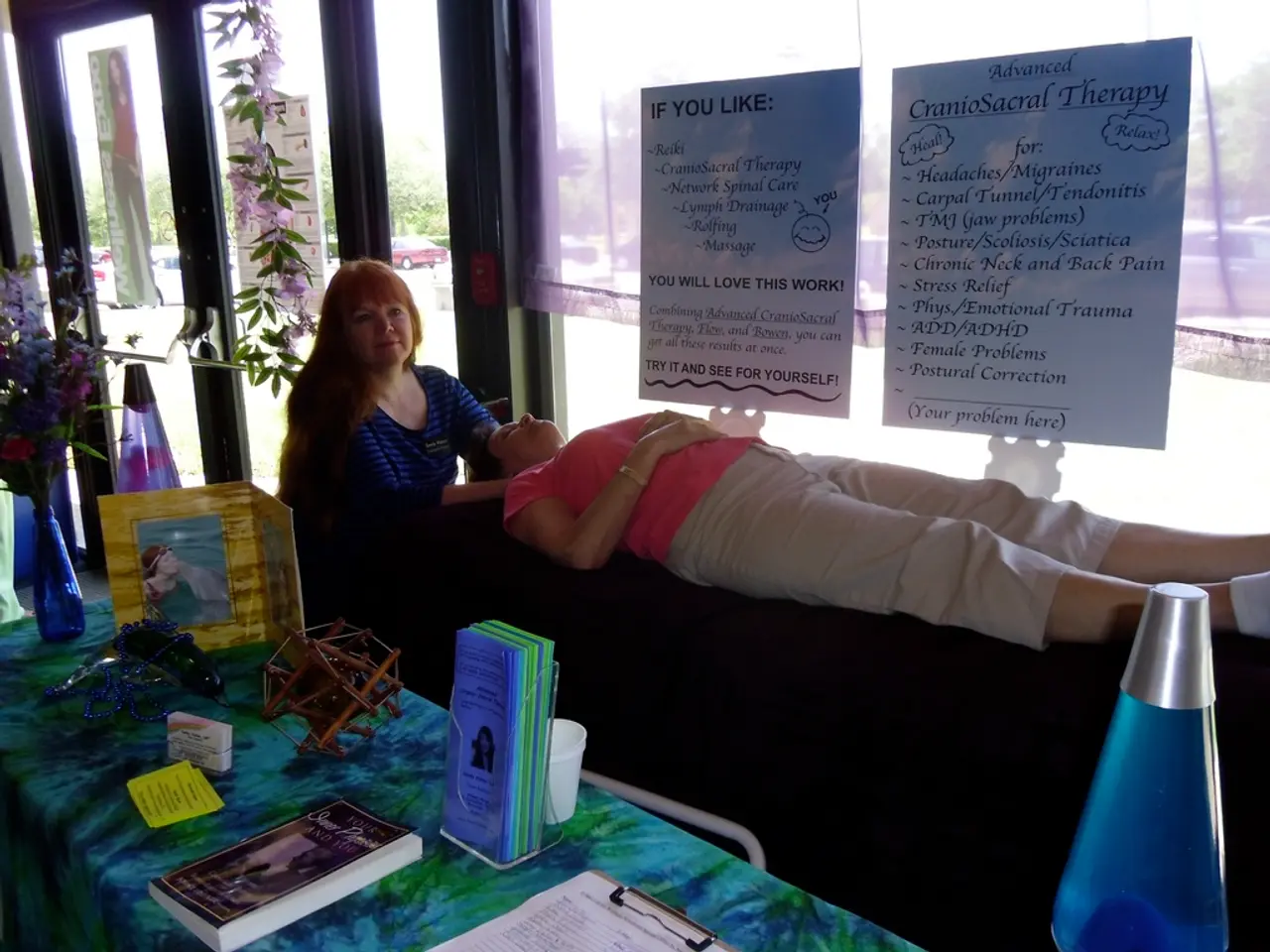Understanding and Treating Mental Health Through Brain Training: A Detailed Guide on Neurofeedback for Depression
Neurofeedback, a non-invasive technique that trains the brain to self-regulate more effectively, may play an increasingly important role in addressing the diverse needs of individuals with depression. This approach, also known as EEG biofeedback, is gaining attention due to its potential as a complementary treatment option, often combined with psychotherapy or mindfulness practices.
Depression, a mental health disorder that affects millions, is characterized by persistent feelings of sadness, hopelessness, and loss of interest in daily activities. It can manifest in various physical and emotional symptoms, including changes in sleep patterns, appetite, and energy levels. The condition can significantly impact relationships, work performance, and overall well-being.
Research has shown that neurofeedback can alleviate depressive symptoms and improve overall mental well-being. For instance, Cheon (2016) found neurofeedback led to real, measurable improvements in symptoms of major depression, providing significant emotional relief, not just slight changes. Similarly, Young et al. (2014) conducted neurofeedback targeting the amyggala (key in emotional responses) and found it enhanced communication between the amyggala and memory-related areas like the hippocampus, helping the brain build better emotional regulation pathways.
Current findings on the efficacy of neurofeedback for treatment-resistant depression (TRD) are encouraging but still evolving. Neurofeedback trains the brain to self-regulate, potentially offering lasting benefits even after treatment ends, which distinguishes it from short-term medication effects. While the evidence base is promising, large-scale randomized controlled trials are still needed to firmly establish neurofeedback as a standard treatment for TRD.
One notable study by Lee (2019) examined neurofeedback in treatment-resistant depression cases, meaning patients who had tried almost all other options. The results showed promising outcomes, though details are limited in this summary. Ongoing studies are exploring the potential of neurofeedback in treating various subtypes of depression and its efficacy in combination with other therapies.
It is essential to note that consulting with qualified healthcare professionals, such as neurologists, is essential for individuals considering neurofeedback as a treatment option. Conventional treatments for depression typically involve a combination of medication and psychotherapy. While neurofeedback may not replace these treatments, it could offer a valuable addition to the treatment plan.
In summary, neurofeedback shows potential as a non-pharmacological approach for managing treatment-resistant depression, with studies reporting significant symptom relief and improved emotional regulation. However, it remains an emerging therapy requiring further high-quality research before widespread clinical adoption. Current clinical trials, such as those exploring transcranial direct current stimulation (a related neuromodulation technique), highlight ongoing research to find effective, accessible, and tolerable brain-based interventions for TRD.
- The role of neurofeedback, a non-invasive technique that trains the brain to self-regulate, could become more significant in managing mental health issues like depression, which is a persistent mental health disorder affecting many people.
- Neurofeedback, also known as EEG biofeedback, is gaining attention because of its potential as a complementary treatment option, often used alongside psychotherapy or mindfulness practices.
- Research has demonstrated that neurofeedback can lead to real improvements in symptoms of major depression, providing significant emotional relief, not just slight changes.
- One study on neurofeedback in treatment-resistant depression cases, where patients had exhausted other treatment options, showed promising outcomes, though more details are needed.
- While neurofeedback might not replace conventional treatments for depression (such as medication and psychotherapy), it could serve as a valuable addition to the treatment plan in the field of health-and-wellness, mental health, and neuroscience.




